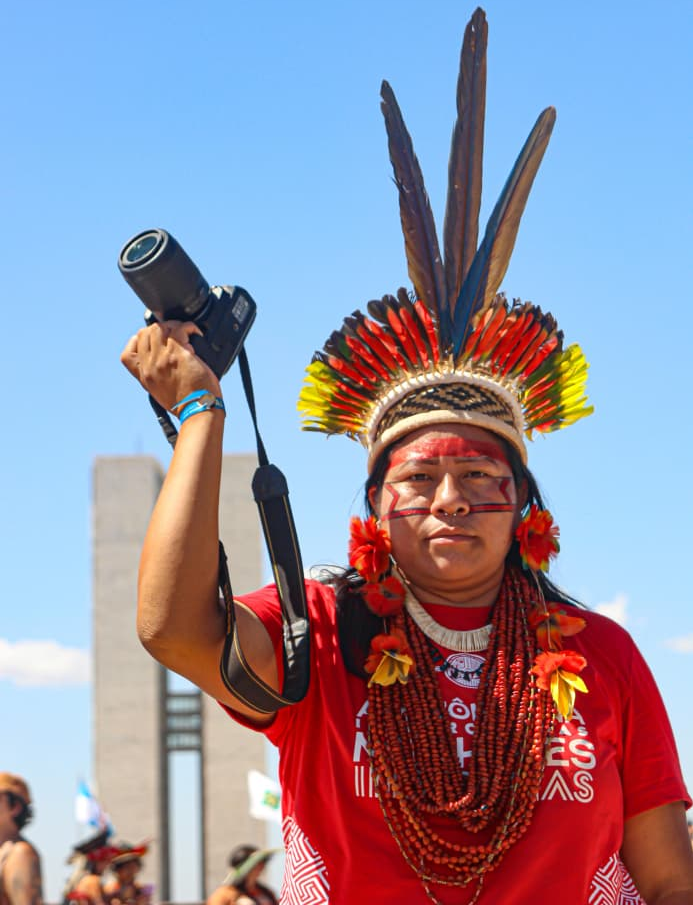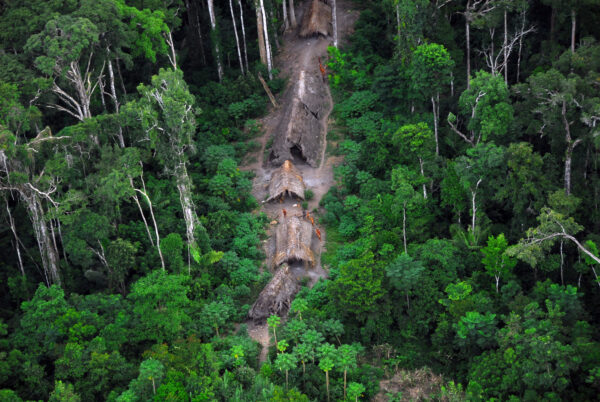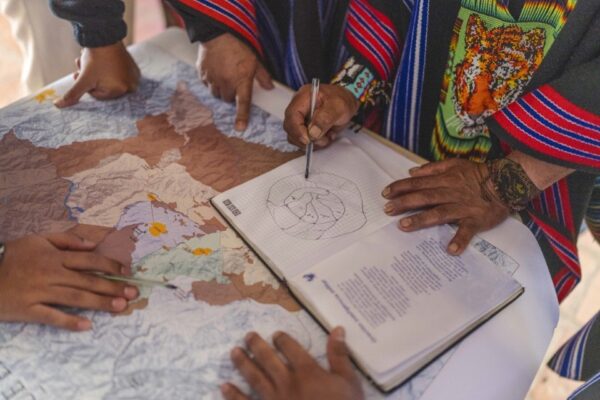Ednalva Rondon grew up in Pakuera village, located within the Kurâ-Bakairi Indigenous Territory in the municipality of Paranatinga, Mato Grosso—one of Brazil’s most ecologically diverse regions, in the central-western part of the country. At 27, she is an active member of the Union of Indigenous Women of the Brazilian Amazon (UMIAB). This year, she is one of two Indigenous communicators who will share stories from their territories at COP30 and provide updates from Belém through the Amazon Conservation Team’s (ACT) social media channels.
Before her journey to Belém, we asked Ednalva to tell us more about her home, her message for COP30, and her views on the urgent realities of climate change.

ACT: What does territory mean to you?
Ednalva: Territory, to me, means freedom, healing, medicine, preservation, and ancestry. It’s a bit difficult to speak of just one meaning, because territory is sacred—it is our home. I believe that every territory carries a bit of this.
ACT: Describe the connection between land, water and culture?
Ednalva: Spiritual connection — we are the Guardians of the earth, the water, and our culture. We were taught by our ancestors to respect and care for the land.
ACT: What are some of the biggest environmental threats to your territories? What would this mean for your community if these threats went unaddressed?
Ednalva: One of the greatest threats is deforestation, which brings climate change along with it. We risk losing our healthy food sources, as it also brings diseases to our community. Unfortunately, this is already happening.
ACT: The UN Climate conference will be coming to the Amazon region for the first time. What is your message to the world or what do you want them to know?
Ednalva: UMIAB is an organization of Indigenous women that fights every day to gain visibility in decision-making spaces. It exists to support women and to achieve their goals, to follow what happens inside and outside the territory. It’s a group where everyone supports each other.
ACT: You will be working as a communicator for ACT during COP30 and sharing updates. How do you view the partnership between UMIAB and ACT?
Ednalva: ACT has always supported UMIAB—they are partners we have found along this journey, helping us to continue strengthening our work and future projects. ACT in Brazil helps us reach the territories and listen to what Indigenous women are seeking.
ACT: What stories do you want to tell through your work as a communicator?
Ednalva: The visibility of our struggle is to show that we are marking (claiming) spaces and breaking stereotypes that say Indigenous people “cannot.” We can—and we are present in all spaces.
ACT: Anything else you want people to know about yourself?
The struggle is not only of one people, but of all the original peoples of this land.
Don’t miss these powerful stories and updates. Sign up for our newsletter today!
Share this post
Bring awareness to our projects and mission by sharing this post with your friends.




